
A Y EAR
WITH THE
CHURCH
FATHERS
A Y EAR
WITH THE
CHURCH
FATHERS
P ATRISTIC W ISDOM
FOR D AILY L IVING
M IKE A QUILINA
CHARLOTTE, NORTH CAROLINA

Quotations from Scripture are from the Revised Standard Version
(Catholic Edition), unless the writers argument depends on a
significantly different translation, such as the Septuagint.
____________________
2010 Mike Aquilina
All rights reserved. With the exception of short excerpts used in articles and critical
reviews, no part of this work may be reproduced, transmitted, or stored in any
form whatsoever, printed or electronic, without the prior written permission of the publisher.
ISBN: 978-1-935302-83-4
ISBN: 1-935302-83-3
Book design by A.R.T. Services
Christopher J. Pelicano and Abby M. Pelicano
Printed and Bound in Canada.
Saint Benedict Press
Charlotte, North Carolina
2010
Contents
 It was from the ancient Fathers themselves that the Church learned to revere the teachings of the Fathers. Christians of those first generations did not go looking for novelties. Innovation was the furthest thing from their minds. When the bishops met for the ecumenical councils, at Nicaea and Constantinople and Ephesus and Chalcedon, they sought not to propose a new agenda, but to confirm the teachings of the Holy Fathers who had gone before themthe spiritual ancestors who had taken care, even at the risk of their lives, to preserve, defend, and propagate the teaching of Christ received from the Apostles. They held to what they found in the Church, said St. Augustine in 421 A.D. They taught what they had learned. What they had received from the Fathers, they passed on to the children.
It was from the ancient Fathers themselves that the Church learned to revere the teachings of the Fathers. Christians of those first generations did not go looking for novelties. Innovation was the furthest thing from their minds. When the bishops met for the ecumenical councils, at Nicaea and Constantinople and Ephesus and Chalcedon, they sought not to propose a new agenda, but to confirm the teachings of the Holy Fathers who had gone before themthe spiritual ancestors who had taken care, even at the risk of their lives, to preserve, defend, and propagate the teaching of Christ received from the Apostles. They held to what they found in the Church, said St. Augustine in 421 A.D. They taught what they had learned. What they had received from the Fathers, they passed on to the children.
The teachings of these men were precious to their contemporaries. Consider that relatively little was written down in those days. Literacy was rare. There were no means of mechanical mass productionno printing pressesand the media (papyrus, parchment, and wood) were expensive, though almost ephemeral in their shelf life. One generations wisdom often crumbled to dust before the next generation could take it up.
So the preservation of words required tremendous effort. Someone had to care enough to write them down, and then many more people had to care enough to copy them over. For a teacher to gain a following over centuries, and across continentsas Chrysostom did, and Augustine, and Jeromethis had to happen almost continuously.
The words of most of the ancient masters have been lost. The centuries are a sieve that strains out all but the greatest. Those teachers whose works have survived from Christianitys first millennium and continue to be cited as authoritiesare the men we call the Fathers of the Church.
Christians have always paid them homage. The Council of Trent forbade anyone to interpret the scriptures in a way contrary to the consensus of the Fathers. The Catechism of the Catholic Church lists them among its principal authorities and cites them abundantly. St. Thomas Aquinas committed entire works of the Fathers to memory, and his Summas are like treasuries of early Christian doctrine. Even heretics have tried to invoke the Fathers as evidence for their mischief.
But what precisely is the authority of the Fathers? Some decades ago, a theologian named Joseph Ratzinger (later to be called Pope Benedict XVI) raised that question and proposed a persuasive answer. The Fathers, he said, occupy a unique and privileged place in the history of the Church: They have played a constitutive role in the process of divine revelation. Why? Because revelation, like any act of communication, is not a one-way process. It involves a give and take. Someone reveals something; someone else receives the revelation. God revealed himself perfectly in Jesus Christ. But the Church fully received that revelation during the time of the Fathers. Theirs was the age of the great councils and the development of the classic creeds. Theirs was the age that canonized the Holy Scriptures. Theirs was the age when the great liturgical families were formed. Theirs was the age when the Church articulated its core doctrines of the Trinity and Incarnation. Theirs was the age when the Church codified its disciplines and forms of governance. The time of the Fathers was the Churchs Yes, its great Amen to Gods definitive revelation in Christ.

St. Basil the Great, as much as anyone who ever lived, pondered the mystery of Sacred Traditionthe deposit of faith, the doctrines and the rites first entrusted to the Apostles and then to the Church Fathers. At the middle of the fourth century, he spoke of sharing the same teachers with us and how this contributes to our fellowship, our communion with one another. Moreover, he says, our teachers are more than mere instructors. They are Fathers. Both you and we have not only the same teachers of Gods mysteries, but also the same spiritual fathers who from the beginning have laid the foundations of your Church one following the other like rising stars.
They are Fathers. They do what good fathers do in families. They teach us to pray and think and live as Christians, and they model such a life for us. They have provided for future generations of the family. They have kept the family property in good condition, guarded its boundaries, and passed it along as a heritage
In a sense, the time of the Fathers is over. Its complete. But now we must reproduce that moment, their movement, in our own lives. We must receive the fullness of revelation and say Amenaccept it as the Fathers did, in communion with them, with the seal of our blood if necessary. For we never know when persecution will come again for the Church, as it came, repeatedly, in the time of the Fathers.
So we begin. This book gives us an opportunity to get to know the Fathers more intimately by prayerfully studying them, little by little, day after day, for an entire year. And, of course, to benefit from their incomparable wisdom.

Next page
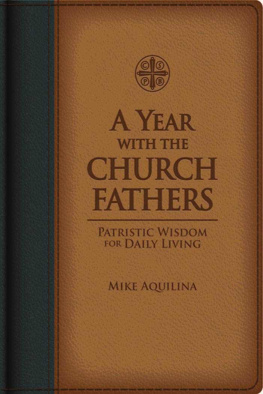
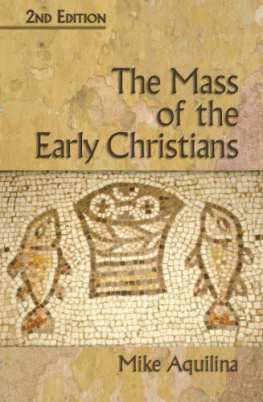
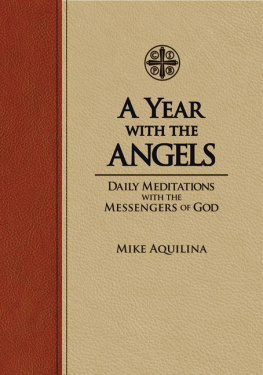
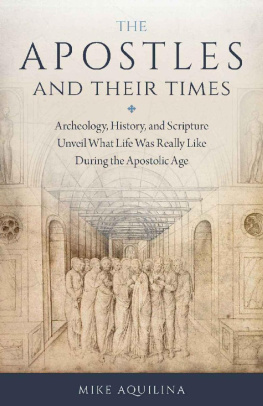
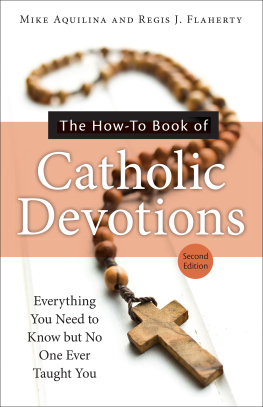


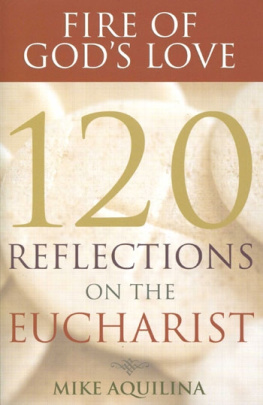







 It was from the ancient Fathers themselves that the Church learned to revere the teachings of the Fathers. Christians of those first generations did not go looking for novelties. Innovation was the furthest thing from their minds. When the bishops met for the ecumenical councils, at Nicaea and Constantinople and Ephesus and Chalcedon, they sought not to propose a new agenda, but to confirm the teachings of the Holy Fathers who had gone before themthe spiritual ancestors who had taken care, even at the risk of their lives, to preserve, defend, and propagate the teaching of Christ received from the Apostles. They held to what they found in the Church, said St. Augustine in 421 A.D. They taught what they had learned. What they had received from the Fathers, they passed on to the children.
It was from the ancient Fathers themselves that the Church learned to revere the teachings of the Fathers. Christians of those first generations did not go looking for novelties. Innovation was the furthest thing from their minds. When the bishops met for the ecumenical councils, at Nicaea and Constantinople and Ephesus and Chalcedon, they sought not to propose a new agenda, but to confirm the teachings of the Holy Fathers who had gone before themthe spiritual ancestors who had taken care, even at the risk of their lives, to preserve, defend, and propagate the teaching of Christ received from the Apostles. They held to what they found in the Church, said St. Augustine in 421 A.D. They taught what they had learned. What they had received from the Fathers, they passed on to the children.